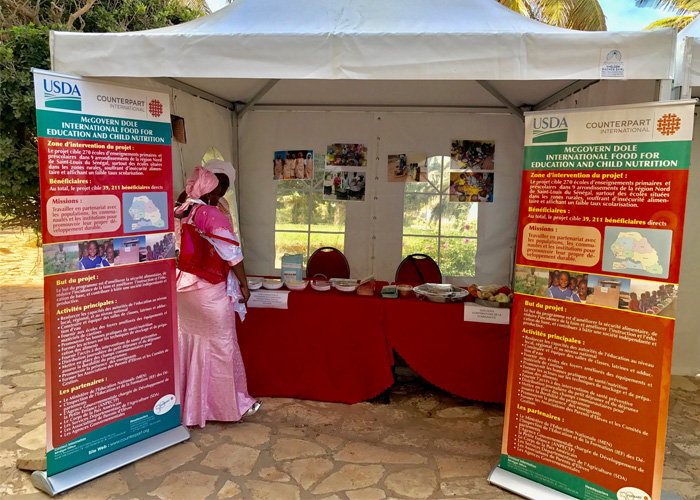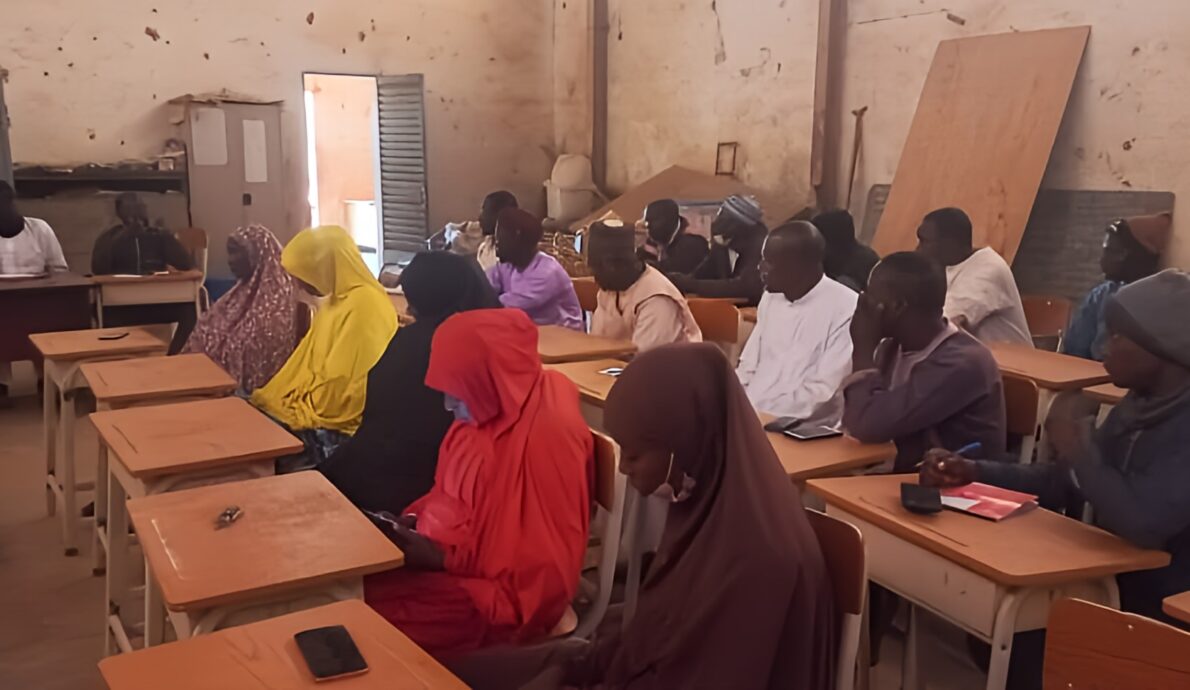Since 2016, Counterpart’s Food for Education Program in the Saint Louis region of Senegal has been serving nutritional breakfasts and lunches to children, helping to increase school enrollment and improve attendance. Key to the program’s success is the active engagement of the community of Saint Louis, including teachers, parents and the Government of Senegal.
Every year since 2007, the National Agency for Early Childhood Development (ANPECTP) has hosted a week-long conference, bringing together hundreds of actors involved in early childhood development, from nutrition counselors to school directors and nurses. This year’s annual forum, which took place from December 11-17, 2017, was planned with the support of partners including Counterpart International.
With the growing recognition of the importance of adequate nutrition on a child’s development, the theme for this year’s annual forum was: “Adequate Nutrition: A Quality Input for Early Childhood Development.” Among the most popular sessions this year was the school feeding forum held on December 13, attended by more than 300 national and regional leaders from the Government of Senegal, NGO partners and representatives from the United Nations. Together, attendees and speakers (including Counterpart, UNICEF, World Vision, World Bank, UNESCO and Malnutrition Control Unit) had the opportunity to discuss strategies and best practices that promote children’s nutrition in integrated early childhood development.
Desire Yameogo, Counterpart’s Country Director, presented evidence-based examples from our Senegal program of how the provision of school meals and additional trainings around hygiene, health and nutrition provide positive impacts on children’s ability to learn and stay healthy. He noted that, “school feeding has a demonstrated impact on school enrollment, attendance, attention, retention and on the child’s cognitive development.” Desire called out the importance of ensuring the sustainability of school feeding programs, and emphasized the need for all community stakeholders, particularly the Senegalese Government, to invest in school feeding to help future generations thrive.
Mrs. Therese Faye, National Director in charge of the National Agency for Early Childhood Development remarked during the session that “Counterpart is doing an amazing job in feeding school children in northern Senegal.”
Discussing the challenges that school feeding programs face, Dr. Ndeye Khady Toure, Nutrition Advisor for the Malnutrition Control Unit, urged Counterpart and others “to be active in more early childhood education and care systems where the need is the greatest and where activities have a maximal impact on the child’s development.”
Our McGovern-Dole International Food for Education and Child Nutrition Project in Senegal is funded by the United States Department of Agriculture (USDA). The project targets 270 schools, including 66 preschools. From January to March 2017, 98% of students across our 270 schools were present at least 90% of the time, and 94% of students had perfect attendance. In just the last two years, the program has served over 11.5 million nutritional meals to more than 45,300 preschool and school-aged children to keep them focused on school and better prepared for a brighter future.





